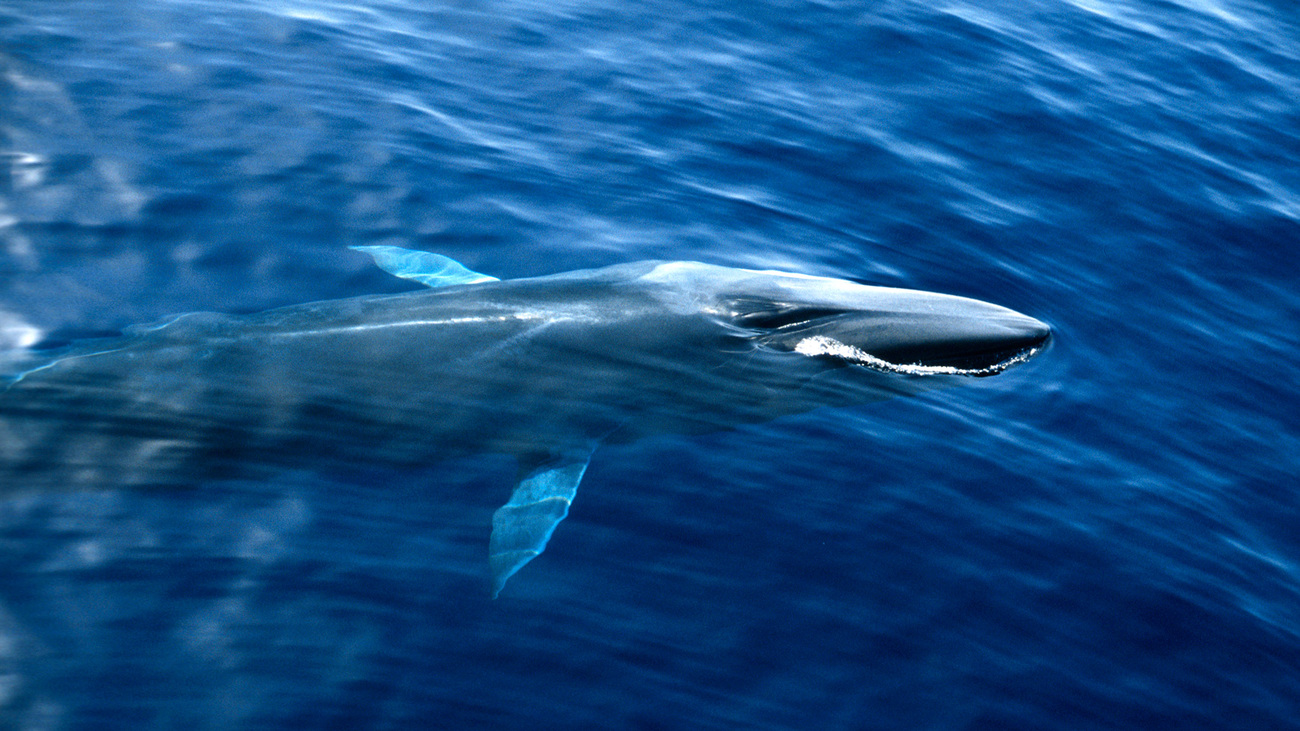Catherine Bell
Are fin whales finished? Japan resumes commercial hunt
Are fin whales finished? Japan resumes commercial hunt

Japan has caught its first fin whale in commercial whaling operations in 50 years. That’s a long time for a long whale—the second longest cetacean, in fact, after the blue whale. As whale populations are already up against ongoing cumulative threats, this is a major setback for global whale conservation. So why is Japan catching and killing fin whales again?
The issue starts with Japan leaving the International Whaling Commission (IWC) in 2019. This is the governing body that ensures fair and sustainable management and conservation of whales around the world. Shortly after, Japan resumed commercial whaling, focusing their sights on annual hunts for 187 Bryde’s whales, 142 minke whales, and 25 endangered sei whales. These numbers are concerning for these species, many of which continue to hang in the balance. Whales are colossal ecosystem engineers—all life on the planet depends on them to some extent.
Then in May 2024, Japan announced it would expand its commercial whaling operations to include the fin whale. This species was severely depleted after decades of historic whaling activities. While their numbers have improved since the IWC’s moratorium on commercial whaling, they are still classed as vulnerable on the IUCN Red List. Japan’s decision doesn’t just undermine global whale conservation efforts; it also exacerbates the plethora of wider threats facing these animals, such as ocean noise, pollution, and climate change.
Japan may have left the IWC. But it still has a duty under international law and the United Nations Convention on the Law of the Sea (UNCLOS) to cooperate with the IWC and its Scientific Committee, in the conservation, management, and study of cetaceans. This duty includes exchanging information on proposed catches so that the IWC’s Scientific Committee can provide relevant advice and an assessment of the hunt’s sustainability. Japan participated in the May 2024 Scientific Committee meeting but kept quiet about the proposed hunt until after the meeting was over. The country failed in its legal duty to cooperate.
Whale hunting is inhumane
This issue raises concerns around conservation, but we must also consider the worrying welfare implications of this hunt. There is no humane way to kill a whale at sea. Especially not one of this size.
Japanese whalers have not killed fin whales since 2011, when they hunted the species in their so-called ‘scientific whaling’ programme in the Antarctic. Current harpoon operators are unlikely to have experience in killing a species that is significantly bigger—both longer and heavier—than the largest species they currently hunt. Harpoons are rarely effective at killing whales on impact, leading to slow, painful deaths.
Just three countries today still commercially kill whales—Japan, Norway, and Iceland. Recent reports from the Icelandic authorities have demonstrated that killing fin whales for commercial operations involves unacceptable levels of cruelty. A study showed that over 40% of whales caught in the 2022 season suffered long and painful deaths. Japan’s methods for killing fin whales haven’t been shared, so we expect they will be no more humane than Iceland’s.
What’s the motive behind commercial whaling?
The question remains—why is Japan seeking to expand its whaling operations when, from all accounts, demand for whale meat within Japan is decreasing?
Despite some claims, commercial whaling is not a crucial part of Japan’s economy—the industry does not exist because it is profitable, but because of taxpayer subsidies, which recently contributed a significant amount to Japan’s newest whaling mother ship. Think the Death Star, but for whales.
Despite arguments that whale meat is an important part of Japanese culture and an issue of food security for the island nation, consumption of whale meat has fallen to only around 1,000 to 2,000 tonnes per year compared to 200 times that at its height in the 1960s. Despite this, Japan continues efforts to promote whale meat, yet 2,000 tonnes of imported Icelandic whale meat remains unsold. Commercial whaling provides a product catering to an increasingly shrinking market.
Japanese whalers argue that whales predate on marine animals that should feed other fish, so whaling helps maintain the balance of the ecosystem—but this is false. Not only is this argument completely wrong, but it also ignores the growing body of scientific evidence documenting the important ecosystem functions provided by fin whales and other cetaceans, including mitigating the impacts of climate change through carbon sequestration and nutrient cycling.
End whaling in Japan
Japan’s decision to hunt fin whales violates the country’s duty to cooperate with international law. It undermines international efforts to conserve and protect whales. It may damage the long-term viability of this whale population. And on the most basic ethical level, it could cause significant pain and prolonged suffering to individual whales.
IFAW is calling on the Japanese government to reverse their decision to include fin whales in their annual catch and to halt the outdated, cruel and inhumane practice of whaling completely. Sign our petition to be a voice for whales.
Related content
Our work can’t get done without you. Please give what you can to help animals thrive.